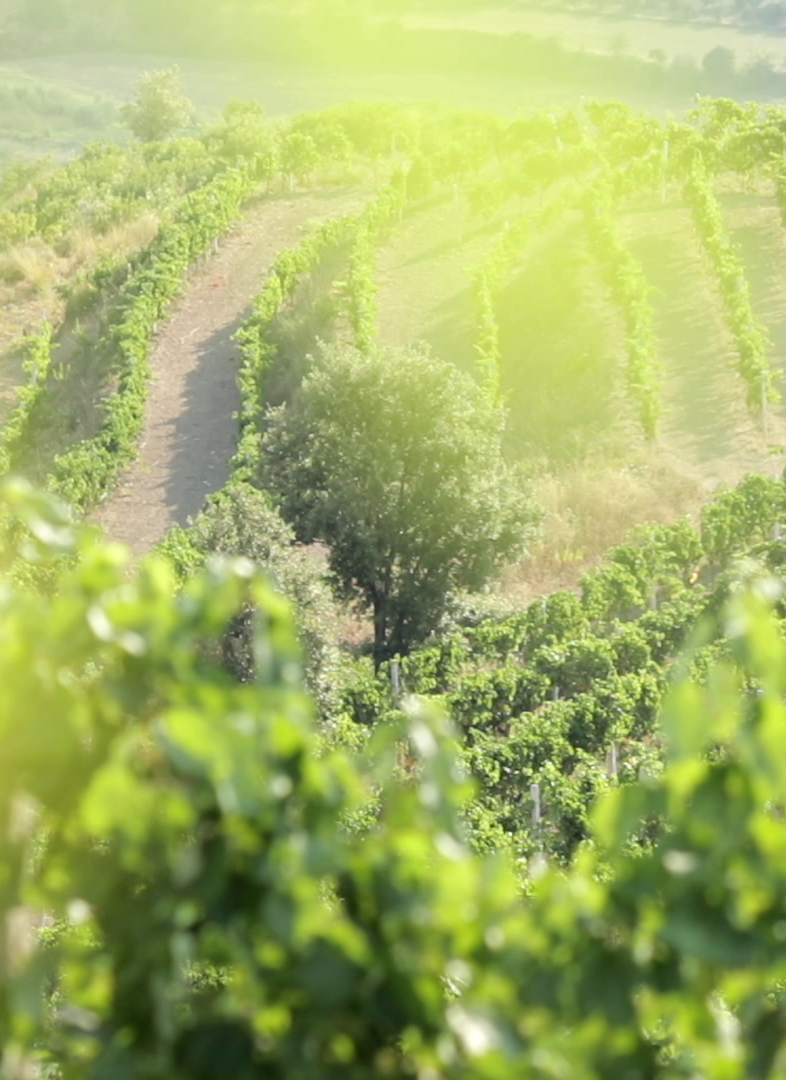
Albanian wines: tasting the Southern terroir
Southern Albania is a thrilling wine region stretching from north of Berat to the boundaries of Greece in the south. And while most wine enthusiasts may be familiar with the impressive success of the vineyards in the UNESCO-town, the extreme south of the country is not just surprising in terms of wine production but also a place that invested in native varieties.
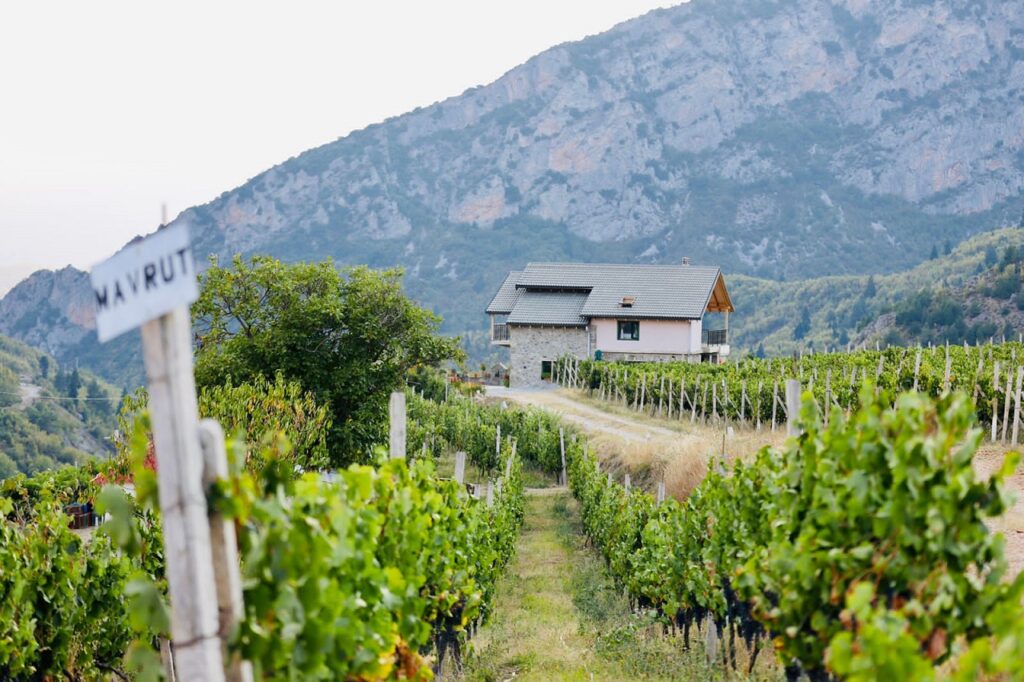
In Berat, Çobo Winery, just ten minutes’ drive from the city centre, is a stunning winery with vineyards, rolling hills and pretty buildings that reproduce Berat’s traditional architecure. The family has been preserving the best of the land and vineyards for about a century now. But it’s after the ‘90s that Çobo vineyards warmed up to the sun all over again in the spirit of cultivating the best grape varieties, autochthonous grapes included. This stunning countryside is home to puls, a Berat native and secular grape with light golden color, aromatic smell, and an elegant structure, that plays an integral part in the wine production of southern Albania.
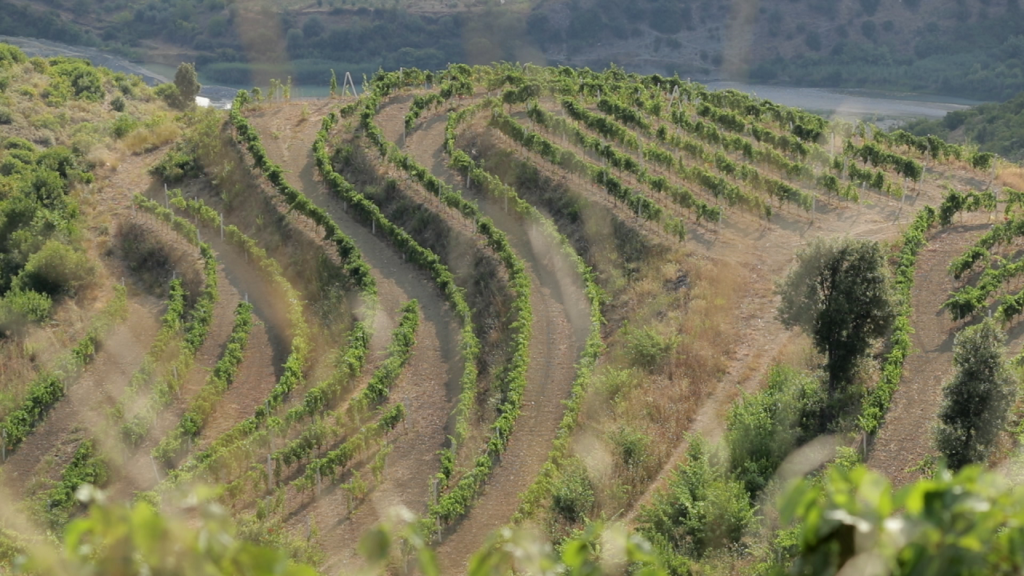
<<It is an area with an ancient wine tradition and, at the same time, a prosperous future>>, says Muharrem Çobo, owner and winemaker who, with his brother Petrit, runs the Winery and welcomes guests. <<Berat is located in the heart of south Albania, an ideal location for growing grapes: the soils are calcareous and climate is mild. Here the sun and right amount of rain alternate perfectly>>.
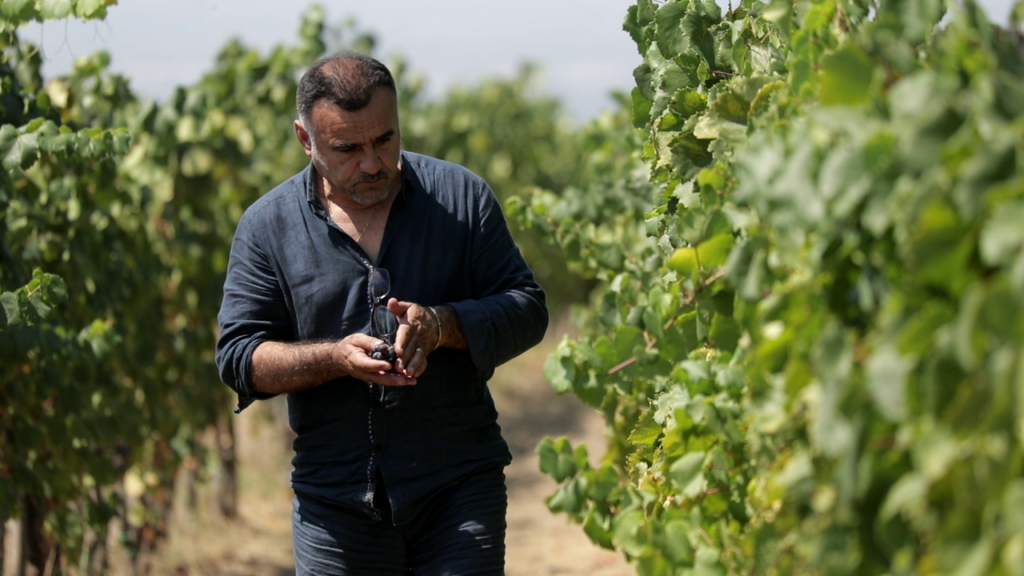
In the region of Berat, Kantina Alpeta is a must-see destination for wine (and food) lovers. Petrit Fiska, the owner, welcomes his guests in this winery-agrotourizëm at the feet of Mount Tomorr with organic vegetables, byrek with spinach, goat meat, jufka pasta, handmade cheeses and much more. And great Puls wine, of course. <<The grapes from which puls is produced now, in the past were ate by chickens (hence the name: puls is from pula, which means chickens in Albanian). Now is one of Berat’s pride, a fruity white grape that in terms of aroma, recalls Riesling and Chardonnay>>, explains Petrit. White, rosé and grape raki, which is maybe the best raki in Albania. You have plenty of choices.
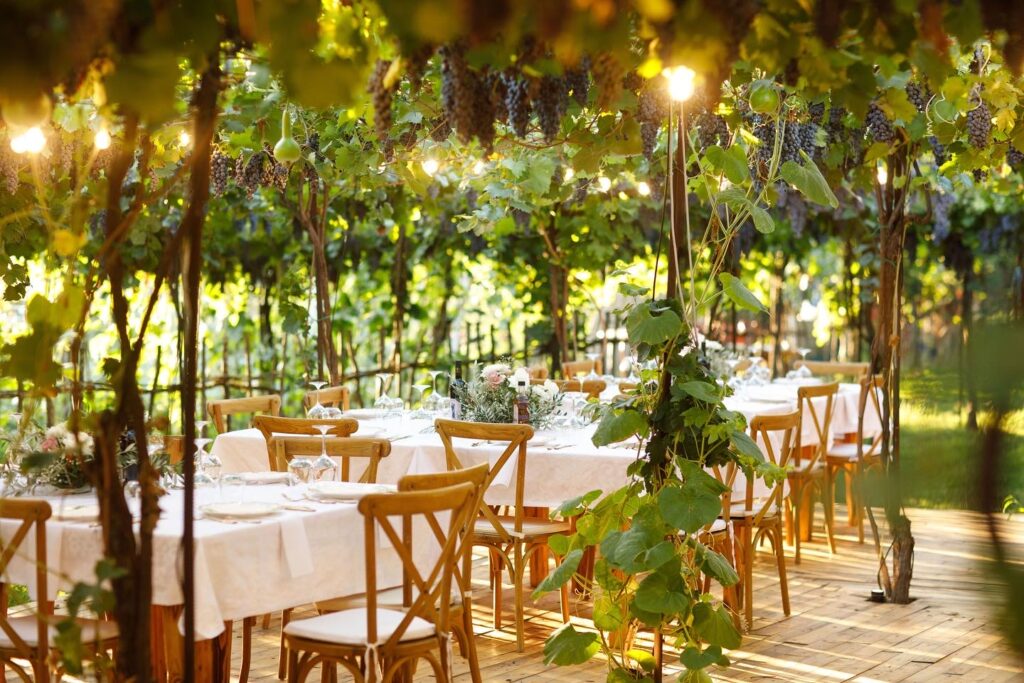
Moving south, between Berat and Mount Tomorr, the village of Pështan is home to Nurellari, a winey established in 1995, which won several prizes in national and international wine competitions. The vineyards are located in rolling hills and span about 40 hectares -but the winery is in process of planting 20 more hectares in the next two years. Except from taking a wine tours and visiting the cellar, at Nurellari you can sleep in one of their 6 rooms and enjoy a weekend in the Albanian countryside.
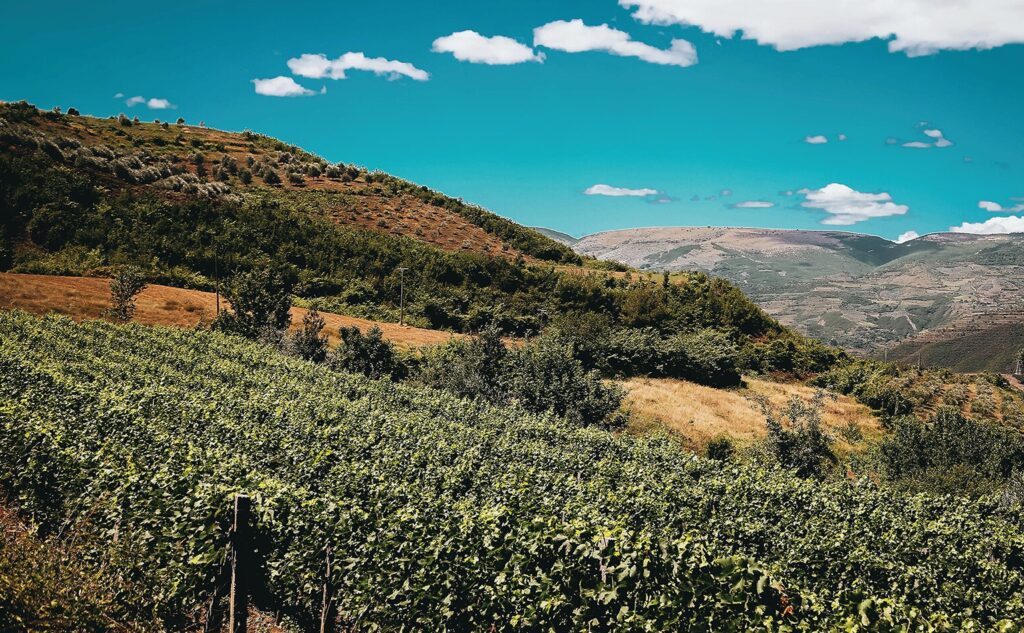
Despite a wine tradition dating back to ancient times, Berat is still evolving in terms of wine production. The latest addition here is Kantina Pupa, located in Fushë-Pështan. There, the expert team carefully selects and produces autochthonous varieties of the area, such as Puls, Serina (black and white), Dëbina (black and white) and Birvoli. The vineyard is dramatically located on the hill in front of Mount Tomorr, at an altitude of 500-700 meters above sea level. The composition and structure of the soil gives a wine with a special aroma and taste. Puls i Artë i Beratit is a straw-colored wine with greenish reflexies, fresh, dry and harmonious, that reflects this unique terroir at its best.
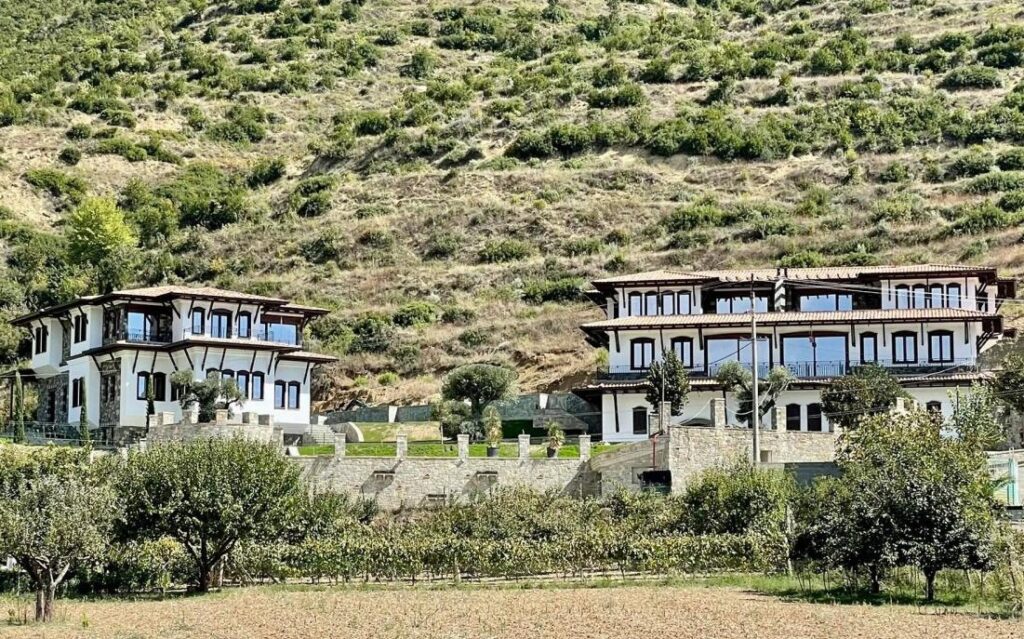
The region of Përmet in the southern reaches of Albania sits in the shadow of Mount Kokojkes part of Bredi i Hotovës National Park, where the terroir is influenced both by the mountains and river. Well, not just a river, but the Albanian river par excellence: this is the land of Vjosa, the last wild river in Europe. Bejko Winery, in Piskovë village, brings out the best that the region offers, forging an identity for the area based partly on indigenous varieties, white Dëbina and white Shesh included.
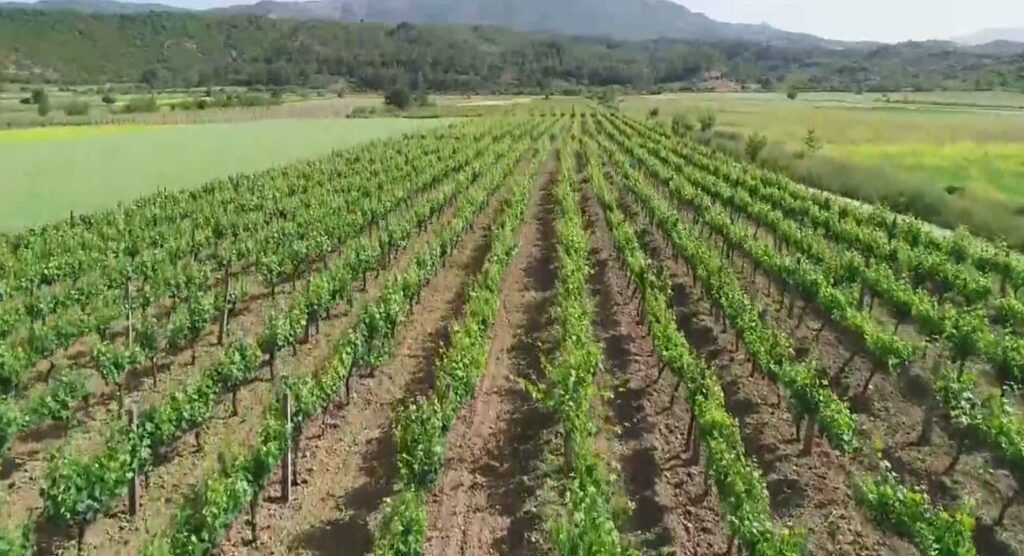
Max Mavrud, in the southernmost point of Albania, is a family-run winery that produces delicious wines from both international and local grape varieties, like the indigenous cultivars Debinë and Mavrud. <<The vineyards grow up in mountainous terrains at an altitude of 750 meters above the sea level, with a very suitable position facing the sun. Our red wine is a deep-colored and full-bodied wine that is a combination of red cultivars such as Mavrud and Merlot>>, says Flori Peri, Max Mavrud’s oenologist. The result? A harmonious blend that perfectly represents this land made of majestic mountains, rolling hills and sceneries of uncontaminated nature.
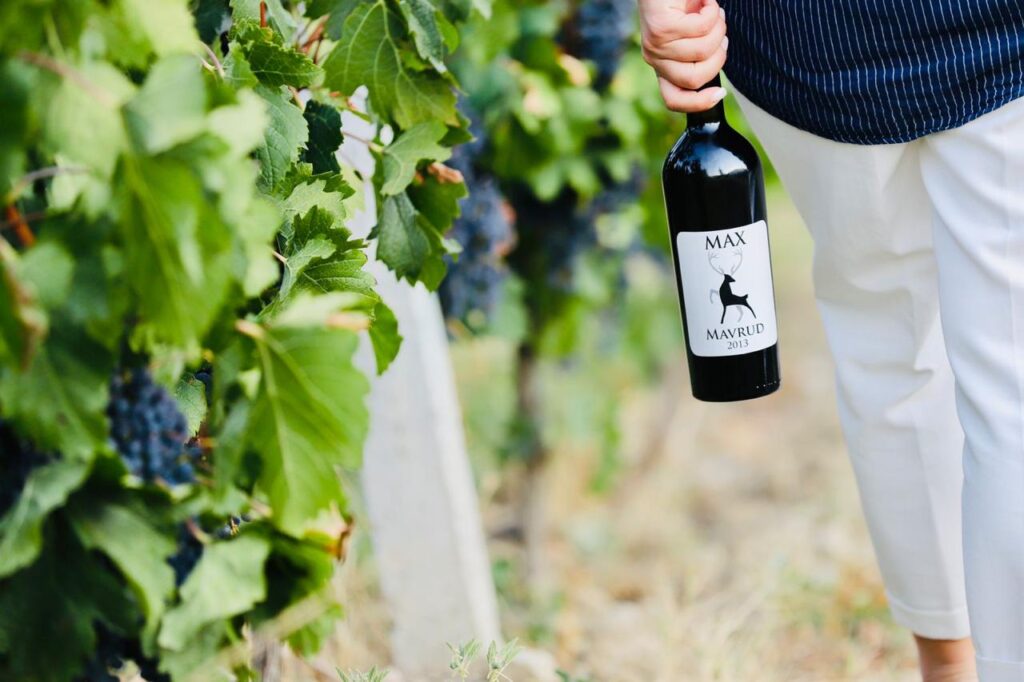
Featured image: ©Çobo Winery




